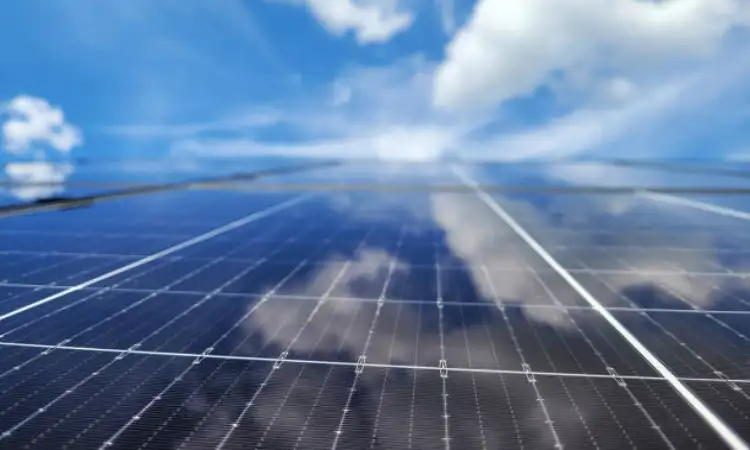The future of solar energy distribution in Europe is increasingly shaped by a convergence of technological innovation and regulatory support, fostering a landscape that prioritizes sustainability and energy autonomy. As decentralized energy systems become more prevalent, localized solar initiatives promise to redefine how communities interact with energy sources, potentially altering traditional distribution models. With advancements in blockchain technology and artificial intelligence enhancing efficiency and transparency, the implications of these changes warrant careful consideration. What challenges and opportunities will arise as Europe navigates this transformative journey in solar energy distribution?
Current State of Solar Distribution
The evolution of solar energy distribution in Europe has reached a pivotal moment characterized by both remarkable advancements and considerable challenges. Currently, the landscape is dominated by an increasing number of photovoltaic distributors who are essential in promoting the adoption of pannelli solari. These distributors have expanded their networks considerably, facilitating greater accessibility to solar technology across diverse demographics. However, the sector faces hurdles including regulatory inconsistencies and market fragmentation, which can impede efficiency and scalability. Furthermore, the rapid pace of technological advancement necessitates continuous adaptation from these distributors to meet evolving consumer needs. As Europe aims for ambitious renewable energy targets, enhancing collaboration among stakeholders will be critical to streamline solar distribution and maximize the potential of solar panels in achieving sustainability goals.
Innovations in Solar Technology
Solar technology’s continuous evolution is reshaping the energy landscape in Europe, driving increased efficiency and integration into existing infrastructures. Recent innovations in photovoltaic (PV) technology, such as bifacial solar panels, enhance energy capture by utilizing sunlight on both sides, potentially increasing efficiency by up to 30%. Additionally, advancements in materials, like perovskite, promise to lower production costs and improve performance. Smart solar panels equipped with IoT sensors facilitate real-time monitoring and energy management, optimizing energy distribution and consumption. These innovations are pivotal for scaling solar energy deployment, ensuring compatibility with traditional power systems while maximizing renewable energy integration. As Europe endeavors for carbon neutrality, embracing these cutting-edge technologies will be essential for a sustainable energy future.
Decentralized Energy Grids
Decentralized energy grids represent a transformative approach to energy distribution in Europe, aligning with the region’s goals for sustainability and resilience. By leveraging local solar power generation, these grids facilitate the integration of renewable energy sources, reducing reliance on centralized systems. As photovoltaic distributors proliferate across urban and rural landscapes, they empower communities to harness solar energy efficiently, enhancing energy security. This localized model diminishes transmission losses and fosters energy independence, essential in the face of climate change and economic volatility. Furthermore, decentralized grids promote innovation in energy storage solutions, thereby ensuring a stable supply even during peak demand periods. As Europe advances toward a greener future, embracing decentralized energy grids will be pivotal in optimizing solar power utilization.
Policy and Regulation Changes
How can policy and regulatory frameworks effectively catalyze the growth of solar energy distribution in Europe? Recent policy and regulation changes are pivotal in establishing a conducive environment for solar energy. Streamlining permitting processes and creating financial incentives for photovoltaic wholesalers can considerably reduce barriers to entry, encouraging innovation and investment. Furthermore, harmonizing regulations across member states can facilitate cross-border energy trading and optimize resource allocation. Evidence suggests that countries with supportive policies see higher adoption rates, enhancing grid stability and consumer engagement. As Europe aims for climate neutrality, robust regulatory frameworks will advance solar energy integration into existing infrastructures, ultimately supporting a sustainable energy future. Consequently, addressing policy challenges is paramount to realizing the full potential of solar energy distribution.
Future Trends and Predictions
Anticipating the future of solar energy distribution in Europe reveals a landscape poised for transformative advancements. As the demand for renewable energy surges, distributors will increasingly leverage innovative technologies such as blockchain for enhanced transparency and efficiency in energy transactions. Additionally, the integration of artificial intelligence will enable predictive analytics, optimizing energy distribution networks and minimizing waste. The rise of decentralized energy systems, where consumers can become prosumers, will redefine traditional distributor roles, facilitating peer-to-peer energy trading. Regulatory support for storage solutions and smart grids will further catalyze this shift, ensuring that solar energy becomes more accessible and reliable. Collectively, these trends will reshape the European energy market, positioning solar energy as a cornerstone of sustainable development.
Conclusion
The future of solar energy distribution in Europe is characterized by significant advancements in technology and regulatory support. Decentralized energy systems, coupled with innovations such as blockchain and artificial intelligence, promise enhanced efficiency and transparency. As communities increasingly adopt localized solar solutions, energy independence will improve, reducing reliance on traditional transmission methods. The alignment of policies and financial incentives will further solidify solar energy’s role as a fundamental component of Europe’s sustainable energy infrastructure.

Vivan Henderson, a professional photographer born in Texas. Photography is his passion. He was fond of nature in his childhood. So he took his passion as a profession. He is basically nature photographer but also take other type of photo. He completed graduation in computer science from Texas Tech University. He lives in Houston with his wife and two children’s.





